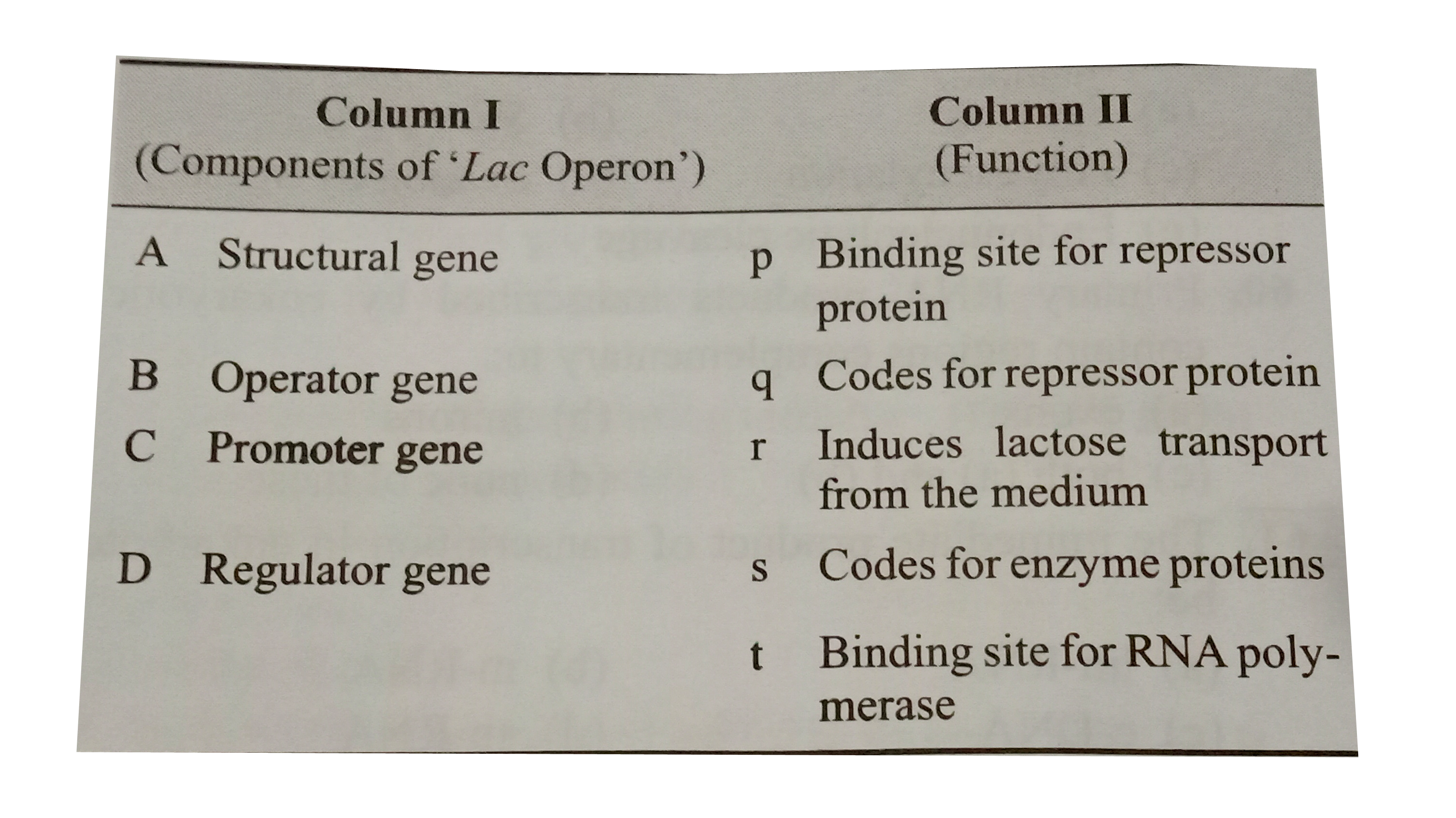A mutant strain of T4 – Bacteriophage, R-II, fails to lyse the E-Coli but when two strains R−IIX and R−IIY are mixed then they lyse the E.Coli. What may be the possible reason : -
Bacteriophage transforms in wild
It is not mutated
Both strains have simillar cistrons
Both strains have different cistrons
The correct Answer is:D
Step by step video, text & image solution for A mutant strain of T_4 – Bacteriophage, R-II, fails to lyse the E-Coli but when two strains R-II^X and R-II^Y are mixed then they lyse the E.Coli. What may be the possible reason : - by Biology experts to help you in doubts & scoring excellent marks in Class 12 exams.
Updated on:21/07/2023Topper's Solved these Questions
- NEETBook:NEET PREVIOUS YEAR (YEARWISE + CHAPTERWISE)Chapter:NEETExercise:BIOLOGY
Explore 306 Videos
- NEETBook:NEET PREVIOUS YEAR (YEARWISE + CHAPTERWISE)Chapter:NEETExercise:QUESTION
Explore 187 Videos
- NEETBook:NEET PREVIOUS YEAR (YEARWISE + CHAPTERWISE)Chapter:NEETExercise:MCQ
Explore 184 Videos
- MORPHOLOGY OF FLOWERING PLANTSBook:NEET PREVIOUS YEAR (YEARWISE + CHAPTERWISE)Chapter:MORPHOLOGY OF FLOWERING PLANTSExercise:Exercise
Explore 91 Videos
- NEET 2018Book:NEET PREVIOUS YEAR (YEARWISE + CHAPTERWISE)Chapter:NEET 2018Exercise:Exercise
Explore 90 Videos
Similar Questions
What is the speed of the current? I. Speed of the boat is 4 km/hr in still water. II. The boat runs at a speed of 6 km/hr down-stream. III. The difference between the speeds of the boat while travelling in still water and downstream is 2 km/hr. a. only I and II b. only III c. Any one of the three d. only either II or III e. either I and II together or only III
View SolutionA curve is represented parametrically by the equations x=t+eatandy=−t+eat when t∈Randa>0. If the curve touches the axis of x at the point A, then the coordinates of the point A are
View Solution
Knowledge Check
A mutant strain of T4 – Bacteriophage, R-II, fails to lyse the E-Coli but when two strains R−IIX and R−IIY are mixed then they lyse the E.Coli. What may be the possible reason : -
ABacteriophoage transforms in wildBIt is not mutatedCBoth strains have similar cistronsDBoth strains have different cistronsR-II strain of T4 bacteriphage cannot lyse Escherichia coli .Two of its types ,R−IIxandR−IIy were allowed to invade the bacterium which lysed because of
ATransformation into wild typeBPresenece of similar cistronsCPresence of different cistronsDAbsence of mutationAssertion : Origin of replication (ori) is a definite region in E. coli DNA where the replication originates.
Reason : The vectose in r-DNA procedures provide the origin of replication.AIf both assertion and reason are true and the reason is the correct explanation of the assertion.BIf both assertion and reason are true but reason is not the correct explanation of the assertion.CIf assertion is true but reason is false.DIf both assertion and reason are false.
Write the name of genus, species, strain of source bacteria from which the following endonucleases are obtained. Also write the order of their identification in the bacteria.
i) Eco R I
ii) Hind II
View SolutionWhen a certain positive integer P is divided by another positive integer, the remainder is r1 When a second positive integer Q is divided by the same integer, the remainder is r2 and when (P + Q) is divided by the same divisor, the remainder is r3. Then the divsor may be r1 r2 r3 (b) r1+r2+r3 (c) r1−r2+r3 (d) r1 +r2−r3 (e) Ca∩ot be determ∈ed
View SolutionWhen a pure strain of tall plants (T/T) with round peas (R/R) is crossed with a pure strain of short plants(t/t) with wrinkled peas (r/r), a F1 -generationis produced. The alleles for short and wrinkled are recessive to those for tall and round, respectively. When these F1 plants self-pollinate, what proportion of the F1 plants self -pollinate, what proportion of the F2-generation is short with wrinkled peas?
View SolutionMatch the components of 'Lac Operon' of E. coli given under column I with their function listed in column II. Choose the answer with correct combination of alphabets of the two columns.

View SolutionIn the following question, if all the statement are true. Find the true conclusion among given three conclusion and then further give your answers :-
Statement : F<T,T≥E,E<R
Conclusions : I. R>T II. R≤T III. F>E
View Solution

